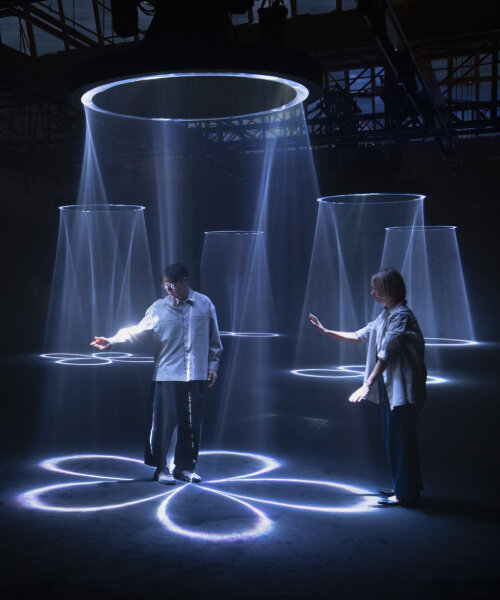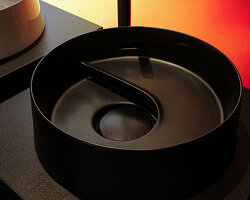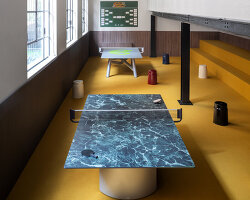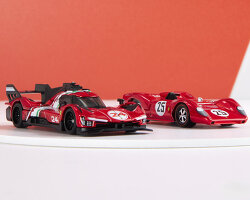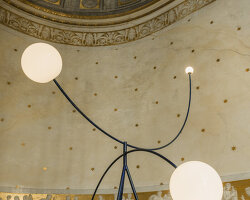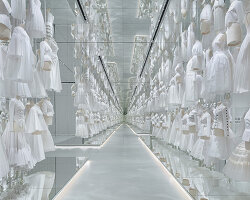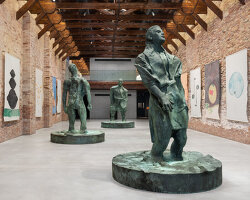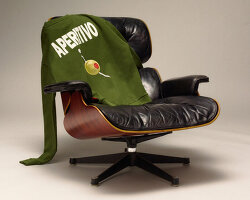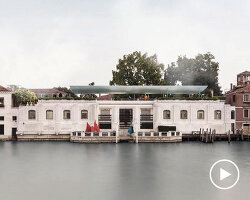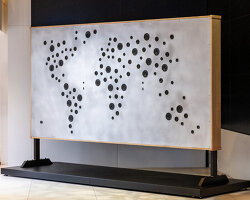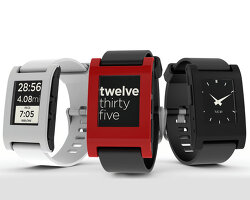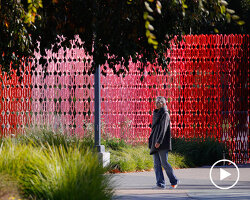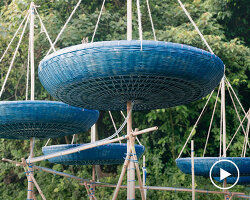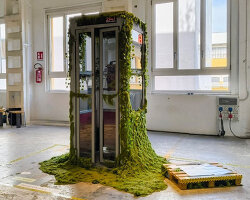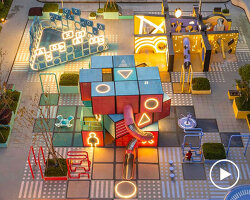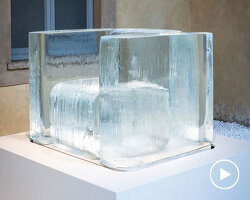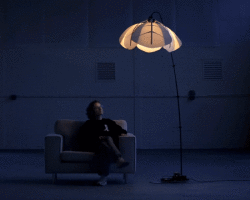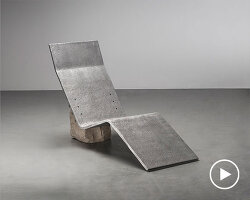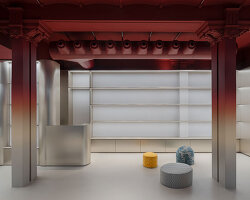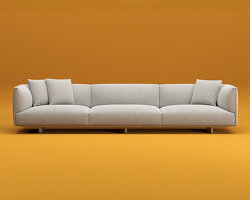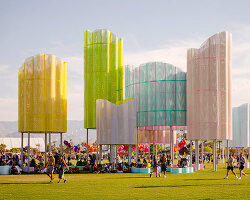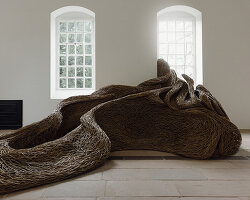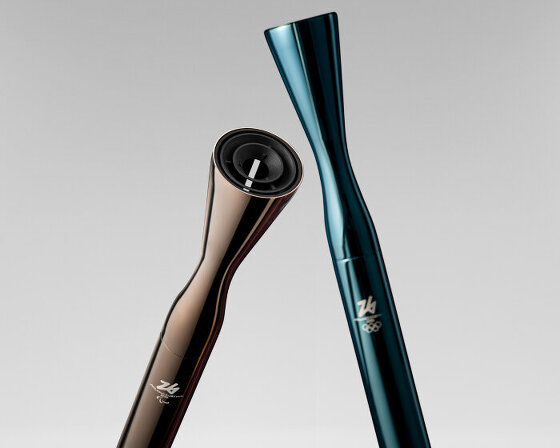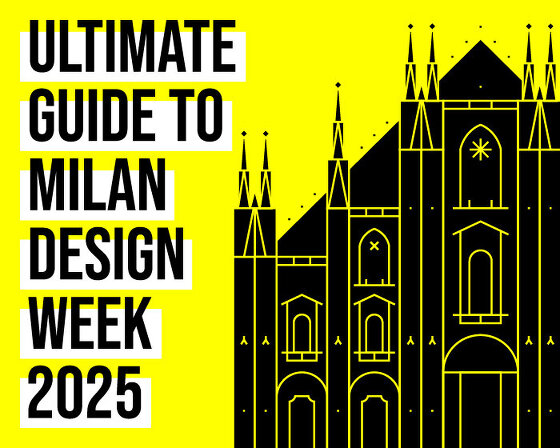lachlan turczan’s interactive light sculptures for google
Lachlan Turczan fills up Google’s Making the Invisible Visible exhibition at Milan Design Week 2025 with interactive halo light sculptures. On view between April 7th and 13th, the American artist, known for his light and water mediums, illuminates the space inside Garage 21 on Via Archimede, 26 with his recent work, Lucida, (2025). He speaks with designboom on the day of the exhibition’s opening, telling us that his interactive light sculptures draw from his series named Veil. ‘When you’re talking about this idea of a curtain – this transparent, gauzy material – that’s what makes up the light installation. It’s a physical object that also feels immaterial,’ he says.
When visitors enter Google’s exhibition, the dark space glows with a series of the artist’s interactive light sculptures. Hands pass through the misty light, and as they do, the halo below sways and dances as if the winds were blowing the curtains or veils. There’s nothing between the visitors and the sculptures. Everything is made of light, an optical illusion that over time can make people think they’re casting a translucent film to the side.
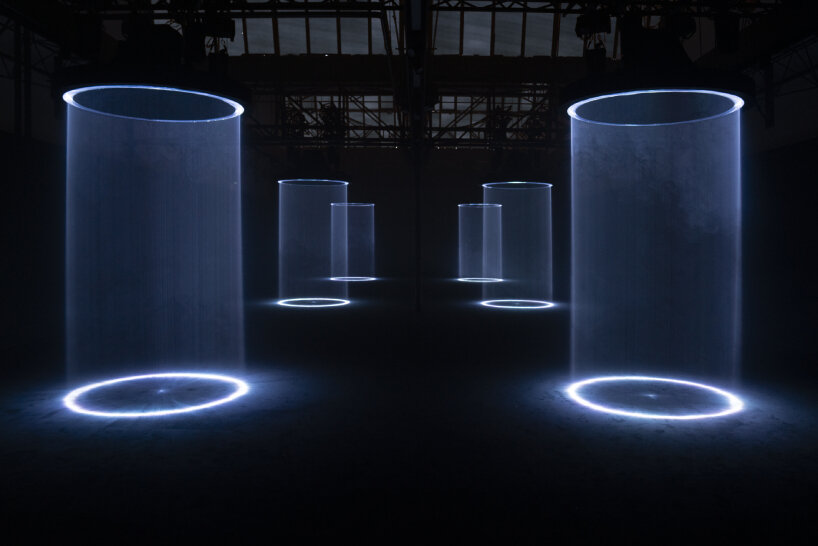
all images courtesy of Google
The making of Lucida (2025) at milan design week
It takes Lachlan Turczan engineering and technology – not to mention years of realizing water and light installations – to create his interactive light sculptures for Google. ‘They’re kind of sophisticated chandeliers,’ the artist explains to designboom. ‘Along the perimeter of the halo structures, which are probably the main components, is this circular annular optic. It’s a camera, and it picks up on audience position data. We’re using lidar, infrared, and normal vision cameras for the installation. We are able to have that modulate and adjust some circle that we’re projecting.’
He says that these lidar, infrared, and cameras detect the visitors as soon as they enter and engage with the lights. The artist and his team calibrate the spatial perimeters through computers, allowing them to modulate the projected circular lighting on the floor. ‘That creates this extrusion of light. The magic is happening in the optics; that’s where the parallel beams create this illusion of architecture, of a physical object, of the materiality of light,’ he adds.
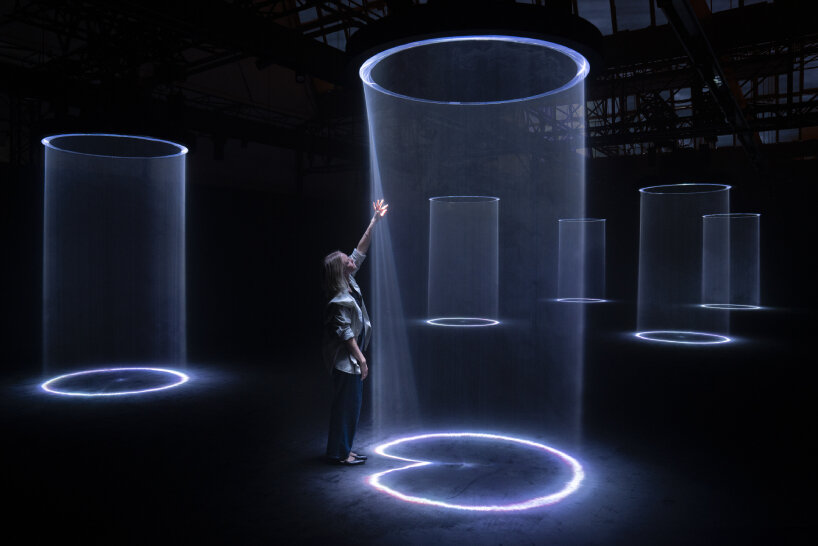
inside the interactive light sculptures by Lachlan Turczan for Google’s Milan exhibition
Projected light shifts shape over time
Lachlan Turczan’s interactive light sculptures for Google change shape, too. From a singular halo, they form the shape of the floral petals. ‘We decided to choreograph it into a progression of six folds, using what that lens enables us to do. We can fold light back on itself in the same way that a curtain can be folded. So there’s one fold, then there’s two, three. It’s just one through six, and it’s got these different harmonic divisions of space,’ the artist tells us.
At the moment, the interactive light sculptures in Google’s exhibition project a semi-singular shade that swings between white, blue, and purple. The artist explains that he and his team use a full-spectral laser. While they can do bright colors, this is the brightest these lights can illuminate with the current technology they’re using. ‘This is basically an RGB laser projector with all three channels going at a hundred percent, and it does have a purplish, maybe a blue cast. But I can’t wait until I get better gear. That’s probably the next iteration,’ he adds.
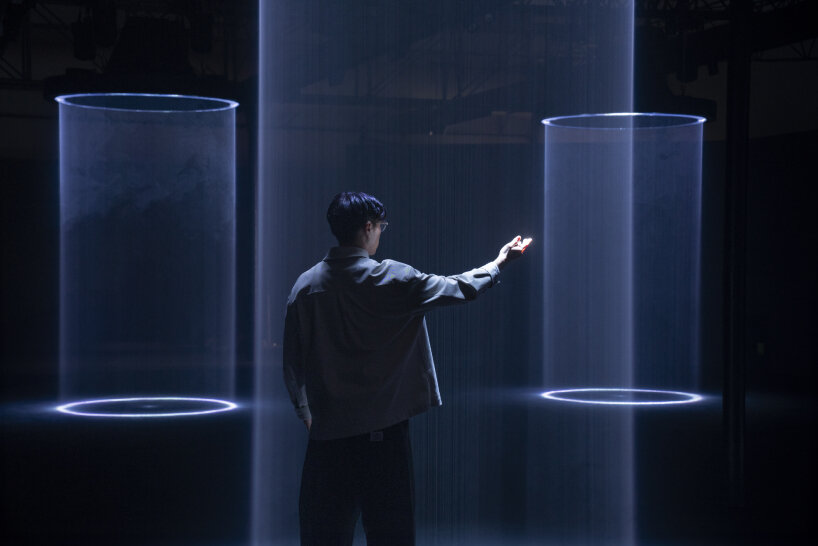
as seen, there’s no barrier between the visitors and the sculptures
After the visitors pass through Lachlan Turczan’s Lucida, they find themselves in the next part of Google’s exhibition during Milan Design Week 2025. Here, a flimsy film projects changing landscapes depending on the weather and temperature. The company also showcases the making of its Pixel Buds. Concluding the show is a color-coded series of Google’s Pixel product line, from the very first to the most recent. The gadgets are on a swirling countertop in chronological order. At the center of the room, there’s a circular table with a heap of rose quartz in the middle. Around these pink stones, visitors get a close-up view of the Pixel product line, categorized into colors.
Lachlan Turczan doesn’t have a brake pedal. As soon as he finishes a body of work, he starts brewing another. ‘I have so many ideas for new bodies of work. I want to make spaces where this is happening on a larger scale, scale them up, and make them brighter. There’s this feeling that I can infinitely modulate space based on this kind of technology that I’ve developed, my studio’s developed, and there’s so much more ahead of us,’ he shares with us. Then, he asks us to imagine an entire ceiling with a lens of light shining down on us. That’s still under development, but the hint alone is enough to give away the grandness of the next interactive light sculpture he has in mind.
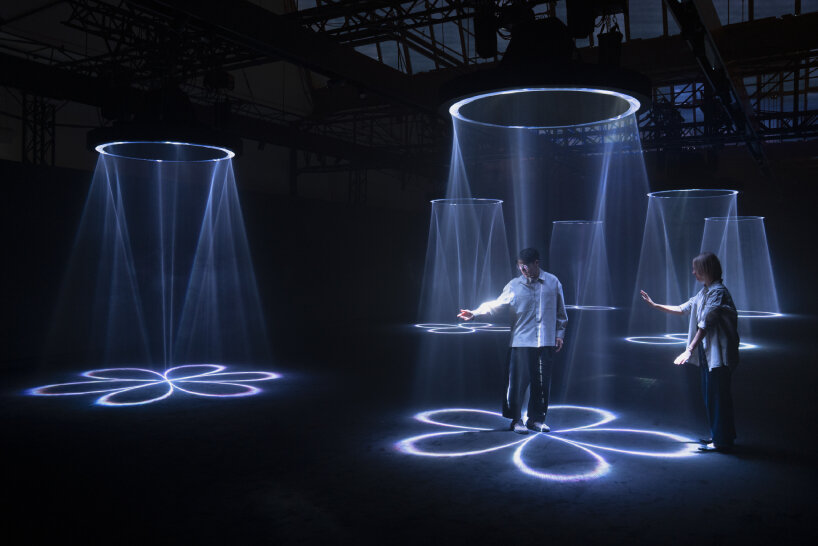
the installation is an optical illusion that can make people think they’re casting a translucent film to the side
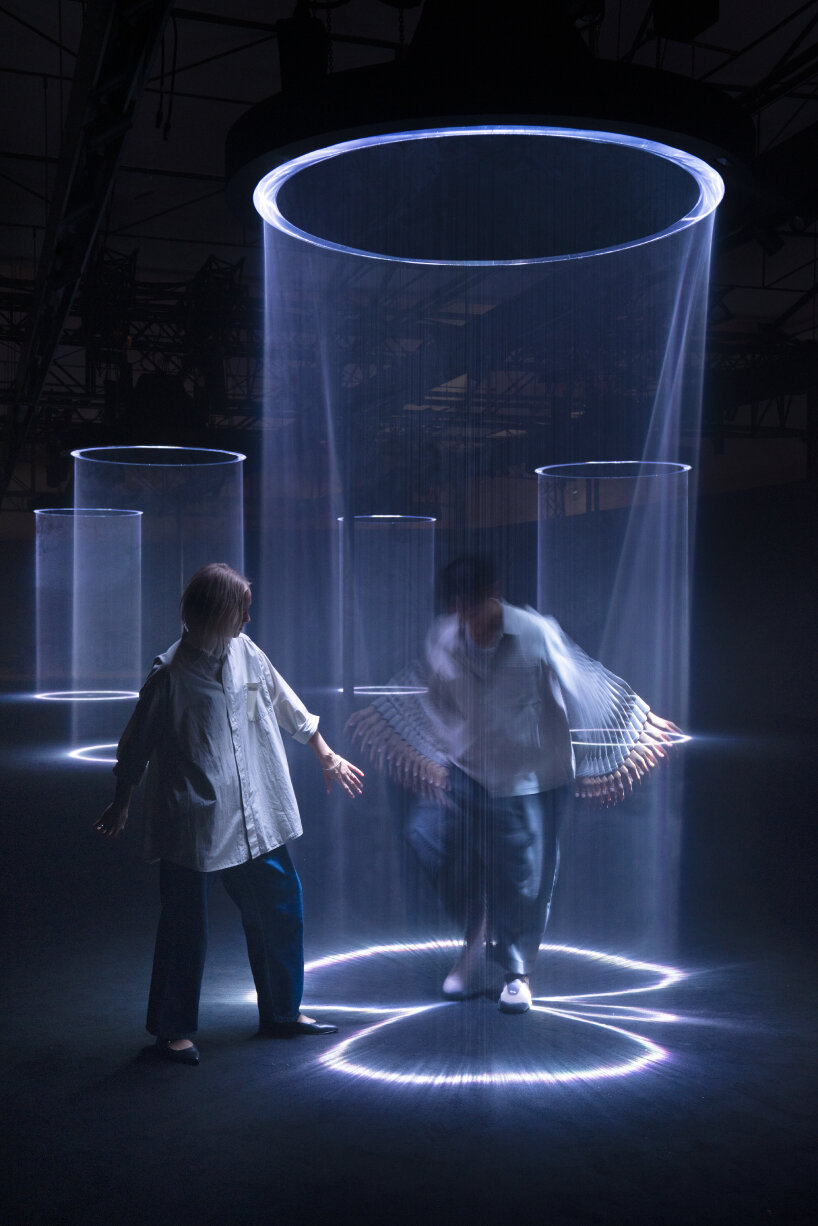
the light evidently moves as visitors play around with the interactive sculptures in Google’s exhibition
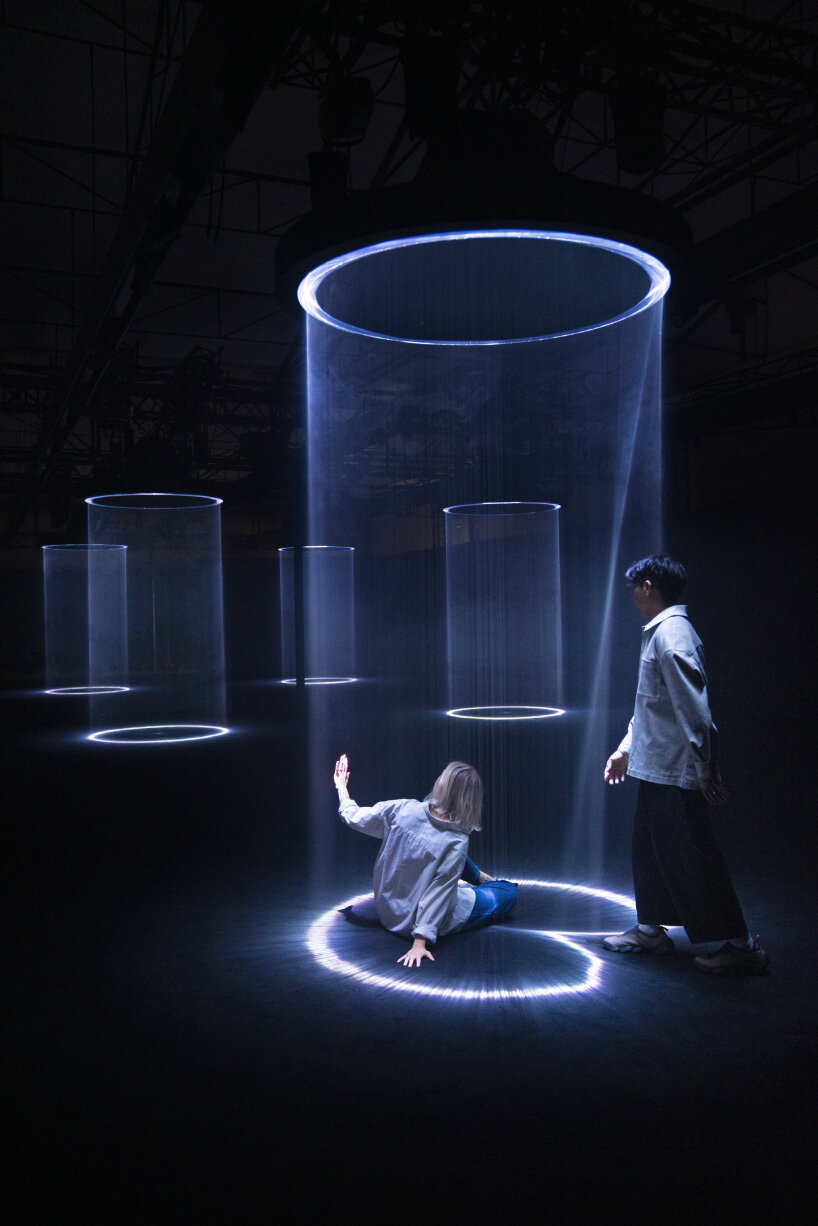
the artist uses lidar, infrared, and normal vision cameras for the installation
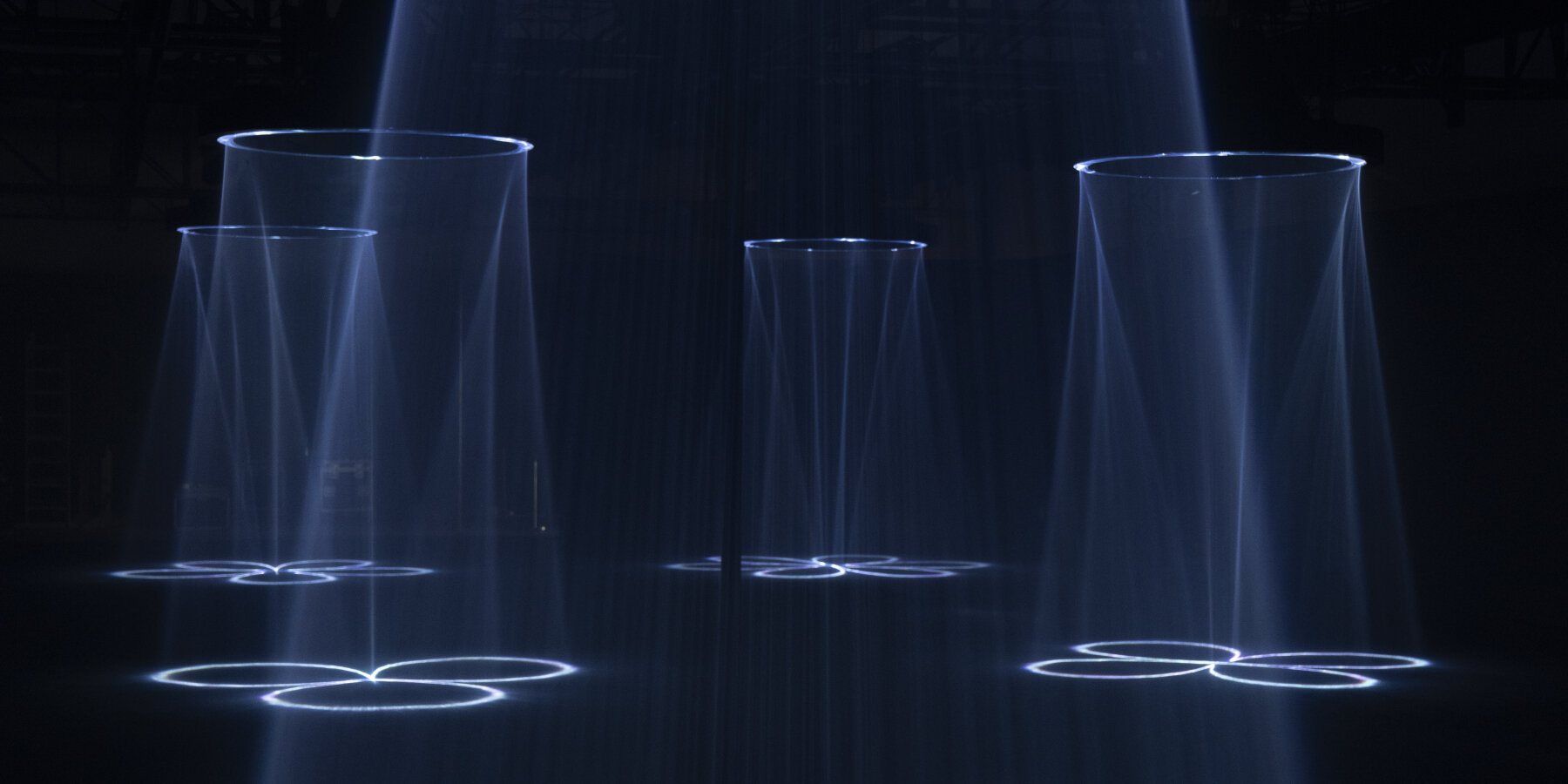
the shape of the light eventually changes over time
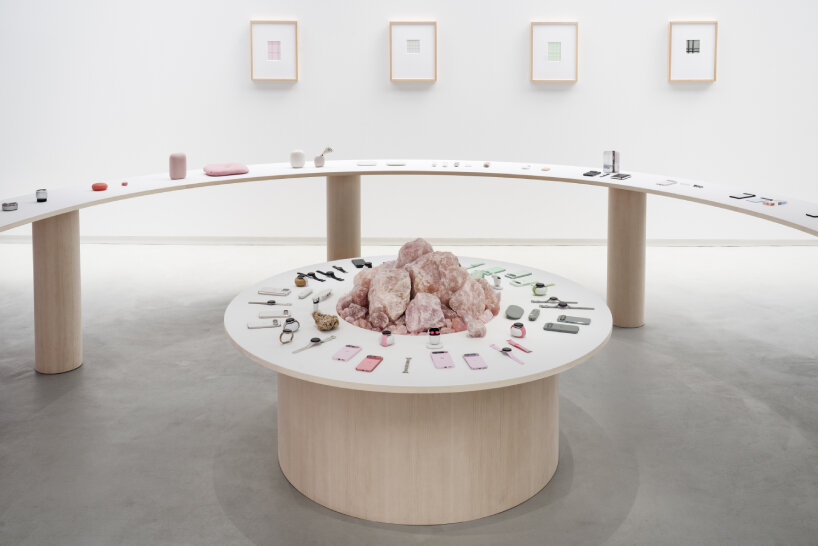
aside from the interactive light sculptures, Google also presents the second part of its exhibition
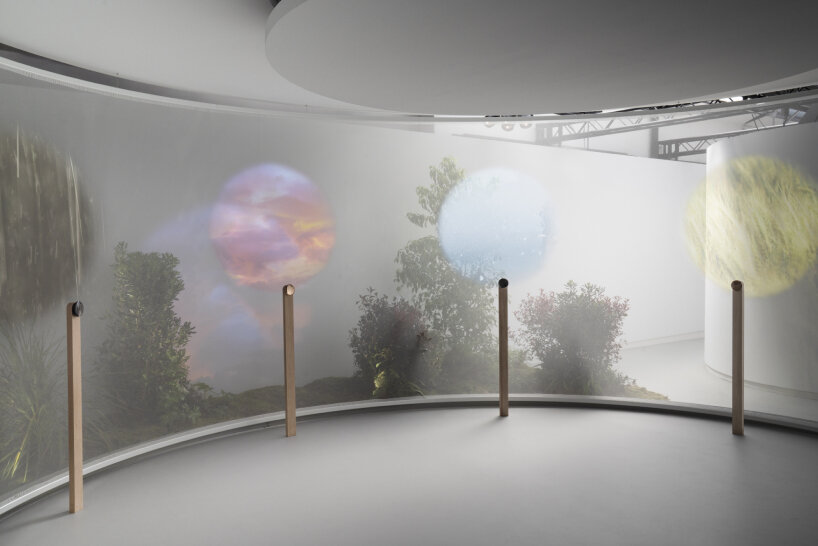
the landscape changes depending on the weather and temperature
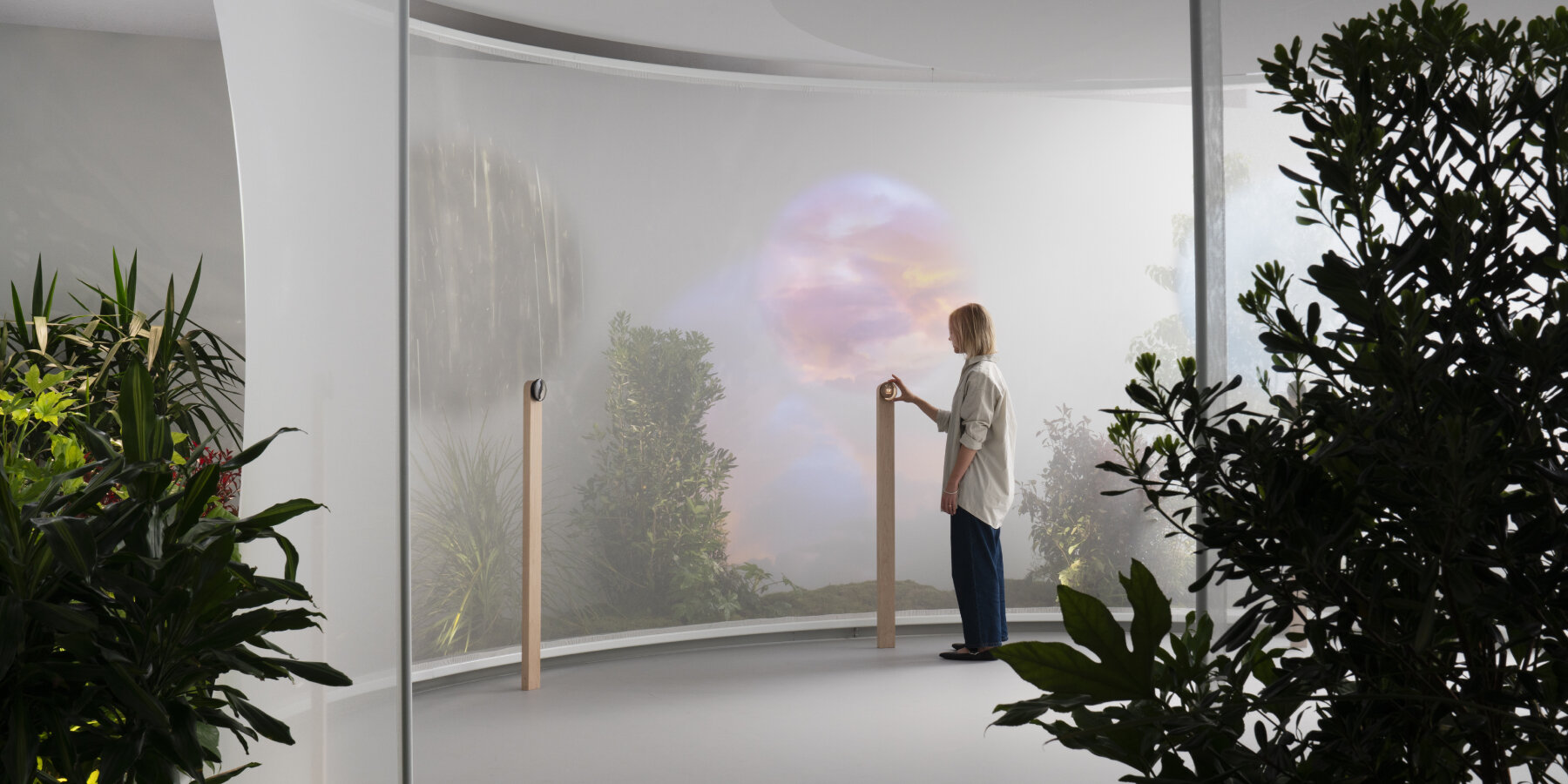
the exhibition at Milan Design Week 2025 is on view until April 13th
project info:
name: Making the Invisible Visible
artist: Lachlan Turczan | @lachlanturczan
engineering: Kevin Izard | @kev_izzy
interaction: Cutmod | @cutmod
sound: Sebastian Sack | @sebastian.sack, @architone.co
exhibition location: Garage 21 in Via Archimede, 26, Milan, Italy
dates: April 7th to 13th, 2025
